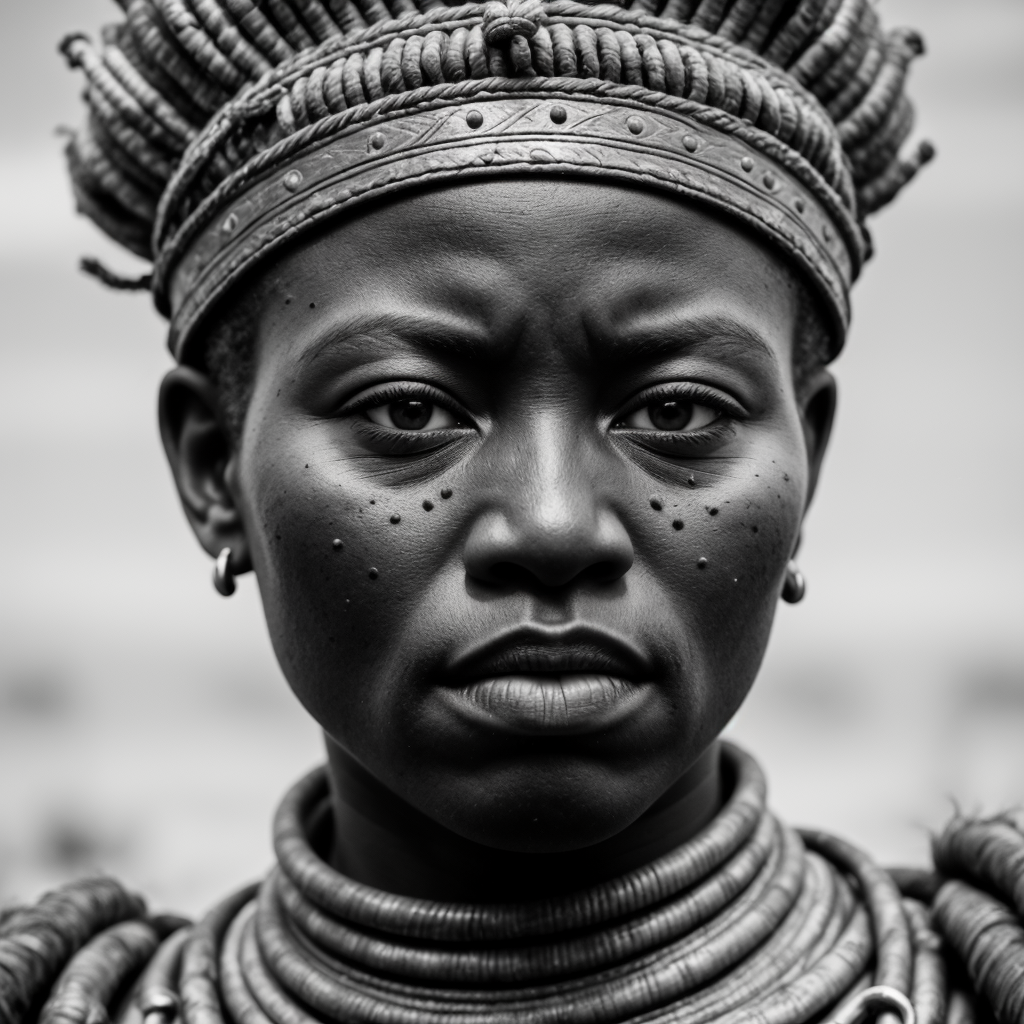
Queen Kaipkire
The Warrior
18th Century
(Not much information about this Queen is available but at AFA we have tried our best to gather as much accurate information as possible)Queen Kaipkire
“I can hear the roar of Courageous women, African women have been Introduced to alien or foreign cultures in the past, the African women themselves, we will fight and sacrifice our lives on the battlefields, we are going to liberate and fight for our freedom and return back to our heritage”
Image generated from AI
The warrior chiefess of the Herero tribe of contemporary Namibia is a veritable jewel whose impeccable history is largely unknown. Her name is Kaipkire. During the 18th century, she propelled her people into rebellion against British colonialists and slave traders. Her enduring impact solidifies her status as one of the most formidable monarchs in the history of Africa.
Early Life
Many individuals even refer to Kaipkire as the "Unknown Warrior" due to the paucity of information which surrounds her. Her nationality was identified as Namibian, and her ethnic background is cited as Herero.
Kaipkire in the role of queen
Unknown African combatant Queen Kaipkire was in charge of the First War of Independence against Namibia in 1857. She is regarded as one of the most distinguished female African warriors who engaged in combat with the Europeans. Queen Kaipkire, who commanded the Jhasi during their First War of Independence in 1857, was alternatively referred to as the Rani of Jhasi.
She led her people in battles against British slave traders during the eighteenth century. The uprising was led by Witbooi, Queen Kaipkire, and Nama. She commanded an army of Herero women and engaged in combat herself. They fired and killed sixty German settlers. It is asserted that only the Germans lost one of the numerous battles and suffered defeats in numerous others. This demonstrated the extraordinary strength of her legions. Historical records indicate that Herero women engaged in combat with German combatants as recently as 1919.
Cultural Legacy and Historical Significance.
Her reputation endures in Namibia as an eminent figure who adamantly opposed the slave trade. Despite the paucity of information regarding her bravery and devotion, she is undoubtedly acknowledged as the African Queen Who Revolutionized the World.
References
Bundy, Diane Brooks (2020). Let the Women Keep Silent in the Churches. Page Publishing. ISBN 9781645442172
Kinni, Fongot Kini-Yen (2015). Pan-Africanism: Political Philosophy and Socio-Economic Anthropology for African Liberation and Governance: Caribbean and African American Contributions (Chapter 3 Gender Consciousness and Pro-Agency: Black Women Feminist Suffragettes and Civil Rights Activists in The U.S.A. and The Spread of Pan-Africanism). Langaa RPCIG. JSTOR j.ctvh9vw4r.9.
geni_family_tree. n.d. Queens & Women Warriors of Africa genealogy project. [online] Available at: <https://www.geni.com/projects/Queens-Women-Warriors-of-Africa/14190> [Accessed 22 May 2021].
Warriors, A., n.d. African Women Warriors. [online] Africa2u.org. Available at: <http://www.africa2u.org/2018/03/african-women-warriors.html> [Accessed 22 May 2021].

